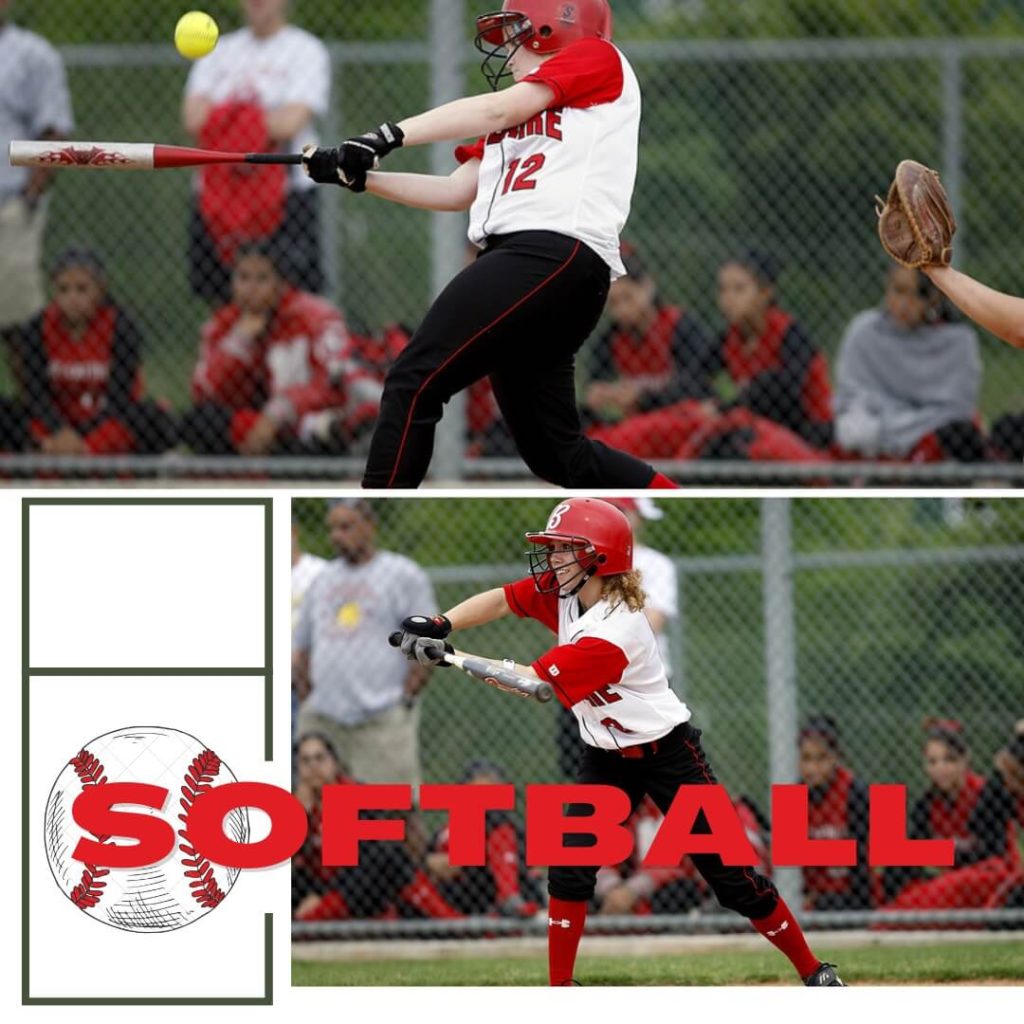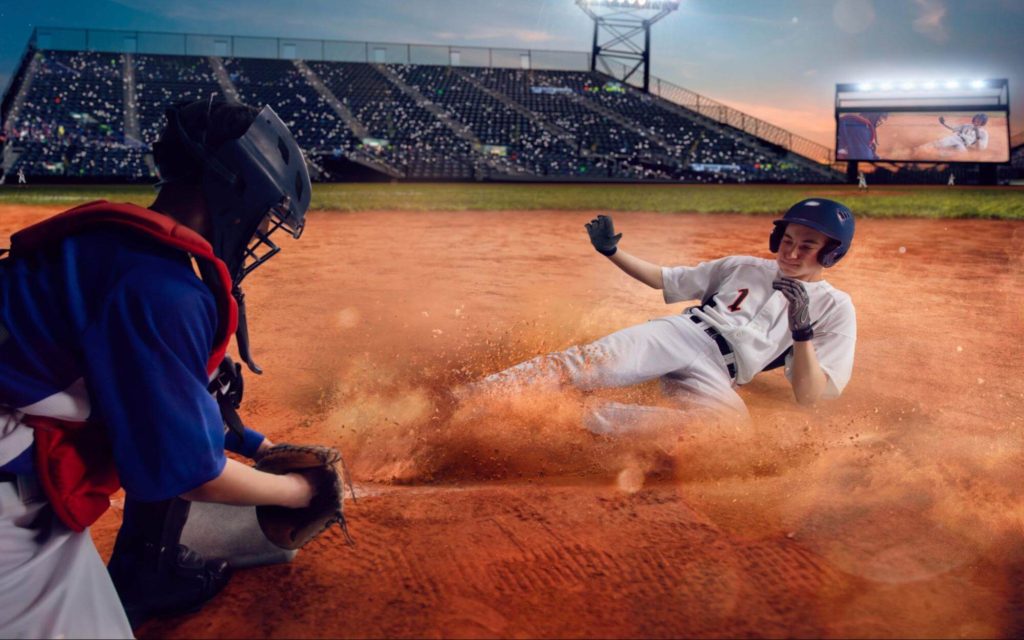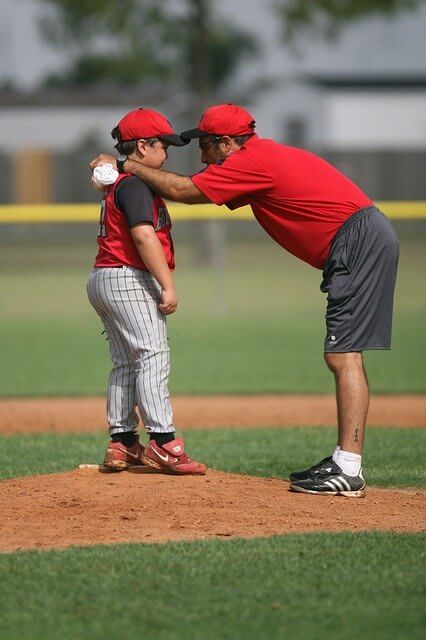When young stars want to build their career in incredible Softball games, they are quite confused about which skill they should master. When you intend to build yourself a regular player, perfecting one skill might work. But when it comes to becoming a utility player, the scenario is quite different.
So, if your goal is to become a utility player, you must first know what is a utility player in softball.
A utility player in softball is a person with versatile skills who doesn’t have any offensive role in the regular starting. They usually play the defensive roles in terms of injury or the rest of the players from regular starting. Also, the coach uses them as tactical moves. Also, they can be used in the offensive role within the innings.
This is only a short overview of what is a utility player in softball. Read the subsequent sections for a comprehensive understanding.
What Is a Utility Player in Softball?
A utility player in Softball is a versatile team member who usually plays different defensive roles. Utility players are typically synonymous with bench players or bench jockeys in all sorts of team games.
Similarly, in Softball, they don’t have any ability to secure any offensive position in the regular starting. However, when it comes to playing the defensive role, they are the jack-of-all-tred.
For instance, Luis Sojo is considered the most impactful classical modern utility player when it comes to shortstop. Additionally, he was able to play third base, second base, first base, and left field.
Knowing about Tony Phillips, a great utility player, will help you understand how versatile a utility player is. He was the first person who played 5 different roles within 10 consecutive games in a single season in 1991.

In a nutshell, it’s quite clear that a utility player is someone who is not actually specialized in a single position. Rather, they create flexibility within the team and help the coach’s strategy.
How are Utility Players Used in Softball?
Utility players in Softball are used in a number of ways according to the team’s needs and the coach’s strategy. As I already said, they are human Swiss army knives. Consequently, they can be used with flexibility. Here are the most common ways they are used.
- Position rotator: This is a part of the game strategy. To leave the opposition guessing about a team’s plan, the coach can rotate the position of players with the utility players. This can help a team to adapt to different tough situations within the innings.
- Player’s substitute: When a player gets injured or struggles with fitness during a game, utility players can be used for their substitution.
- Base runner: To speed up the base running in a crunch moment of a game, a utility player can be used as a base runner.

- Defensive specialist: If a utility player is a specialist in any defensive position like infield or outfield, the coach can use them where their specialized skill is needed.
- Pinch hitter: When a utility player is a good pinch hitter, the coach can add him on the field for the role of pinch-hitting in the crucial phase of a match.
- International game’s flex player: There is a “flex player” rule for international matches. According to this rule, a team is allowed for substitution without affecting the batting order. In this case, a utility player can be used as a flex player.
- Infield and outfield flexibility options: For adding depth to the team’s defense, utility players can be a good option for infield-outfield transition.
- Designated Player: A designated player is someone who can bat without having to take the field. This is only permitted in some leagues. A utility player can be a crucial designated player to make the most use of the defensive and offensive capacity of a team.
Apart from these, there are a few other ways to use a utility player, depending on the match scenario.
Where are Utility Players Used in Softball?
Utility players are used in almost all positions in Softball. However, these are some of the most common positions where they are used most.
Infield:
Utility players are used in all the positions of the infield, including:
- First base (1B)
- Second base (2B)
- Third base (3B)
- Shortstop (SS)
Outfield:
Utility players are allowed to be used at all the positions of the outfield, including:
- Left field (LF)
- Central field (CF)
- Right Field (RF)
They can also be used at other positions like-
Are Utility Players Commonly Good Hitters?
Yes, utility players are commonly good hitters, but it’s not necessary that they must be good hitters. As mentioned above, utility players are versatile, so they can be specialized for any specific role.
Nevertheless, the fact is they are commonly a good fit for flexible positions.
It’s noteworthy that they can be good at any particular role according to their preference. There is no certain rule that mentions a utility player should be a good hitter. Even a good pitcher, catcher, or base runner can be a utility player.

What Are the Key Characteristics of Utility Players?
A common characteristic of Softball utility players is they are competent for versatile roles. Notably, these are some of the traits that a good utility player usually possesses:
Versatility
A good utility player is always versatile. They typically have the capacity to play versatile roles according to the situation demands. Especially when it comes to defensive roles, they are mostly able to take the infield, outfield, pitcher, and catcher positions.
Adaptability
A utility player is always adaptive. They usually have the mental, physical, and skill-wise competency to adapt quickly to any position in any situation. They are also very quick learners as sometimes they need to go out of their comfort zone.
Reliability
Utility players are the most reliable players in a team. The coach can rely on them in the crunch moments. For instance, when a player gets injured from the regular start, or the team needs specialized service for a position, the team undoubtedly relies on them.
Team-first Mentality
To a utility player, the team is always the first priority. They never worried about their personal achievement. Rather, they come ahead when the team needs them most. This characteristic differentiates them from everyone else. Also, they never hesitate to play a supportive role to their teammates.
Positive Attitude
A utility player mostly possesses a positive frame of mind and tries to spread that among their teammates. Since they are not really worried about their personal stats, that’s why they remain positive even at the tough moments of a game. They encourage their teammates and help them to stay positive as well.
Strong Ethics
Utility players are always ready to run the extra mile to give their full potential. They are really hard workers and constantly try to improve their skills to better contribute to the team’s success. They are never scared to ethically work hard to keep them ready for uncertainty.
Why Utility Players Are Important In Baseball?
For the backup in uncertain situations and increasing the bench strength, a utility player is important in Baseball. In a game, it’s normal for a player to get injured. In this situation, a utility player becomes the crucial replacement.
Not only that, as the utility players are versatile, they help the coach in tactical decision-making.
For instance, when a player is good at pinch-hitting but not that good at defense, the coach can add a utility player as a substitute in place of that particular player for a better defensive option.
Here are a few important points why utility players are important.
- For a wide range of versatility
- For team depth
- For game planning
- For improved defense
Is It Good To Be A Utility Player?
Yes, it’s typically considered to be good to be a utility player. However, like every universal aspect, it also has some drawbacks as well. So, here are some pros and cons of being a utility player.
Pros
- They are valued in the team because of their versatile roles
- They better understand tactics
- They are important for every team as the savior at the crunch moments
- It’s a good career option for an athlete
- They face low internal competition
Cons
- They don’t get as much playing time as regular player
- It’s always challenging to be top-notch in every position
- They don’t often get enough recognition
How To Become a Good Utility Player?
To become a good Softball utility player, you should be consistent in your process and maintain a strong work ethic. However, as a seasoned coach, I always suggest young stars follow these specific processes:
Learn to Play Multiple Positions
As you already know, a utility player is versatile, so it’s crucial to prepare yourself for a variety of positions. From the very beginning of your career, work ethically to acquire skills for playing in different positions. Capitalize on every opportunity that comes to you in whatever position you play.
Most importantly, you should focus mainly on defensive skills. Whether it’s infield or outfield, make yourself a capable contender everywhere on the field. Also, try to be a good pinch-hitter. This is because coaches often use the utility players as a pinch-hitter when needed.
Be Consistent in Your Process
As an athlete, you must be consistent in your process. It’s normal that everything won’t always go your way, but you must be patient when you fail. Additionally, you must keep working hard in every situation. Remember, only skills can’t help you to achieve your goal; determination also matters.
Put The Team’s Interests Ahead of Your Own
If you want to be a good utility player, you must have a team-first mentality. Since utility players don’t get to play in the starting lineup, you’ve got to be ready to contribute whenever the team needs you.
You must accept the fact that you won’t get as much playing time as a regular player gets. Despite this, you must always carry positive vibes within the team.
If you fail to do this, you are not ready to become a good utility player.
FAQs
Can A Utility Player Pitch?
Yes, a utility player can pitch but it’s not often they are seen in the pitcher position. Typically, they play in the defensive positions like infield and outfield. Nevertheless, there is no restriction when they pitch. According to the team’s needs, the coach can use them in almost every position.
How Do Managers Decide When To Use A Utility Player As A Pitcher?
Managers decide when to use a utility player as a pitcher depending on several factors. The game situation and the pitcher’s availability are the two most important aspects based on which managers decide when to use them.
Also, their pitching ability, the opposition’s lineup, and the preservation of pitchers are some other factors that are also considered while deciding.
Conclusion
Well, hopefully, you got the answer of what is a utility player in Softball. Despite not being in the main playing squad, utility players are nothing less important. Remember, a utility player is a kind of sacrificing character in the team. So, if you are planning to be a utility player, first grow a selfless mentality.
Best of luck, champs!

Hello everyone. My name is Jason Butler, and I live in California, America. I was a professional AAA Minor League Baseball player. I lost my chance of playing MLB for injury issues, but I did not lose my love for baseball. I attended the coaching training program and am now working as a coach in a small school in San Diego.
I always love to share my experience and knowledge if that can help you. Play baseball, and stay fit.
